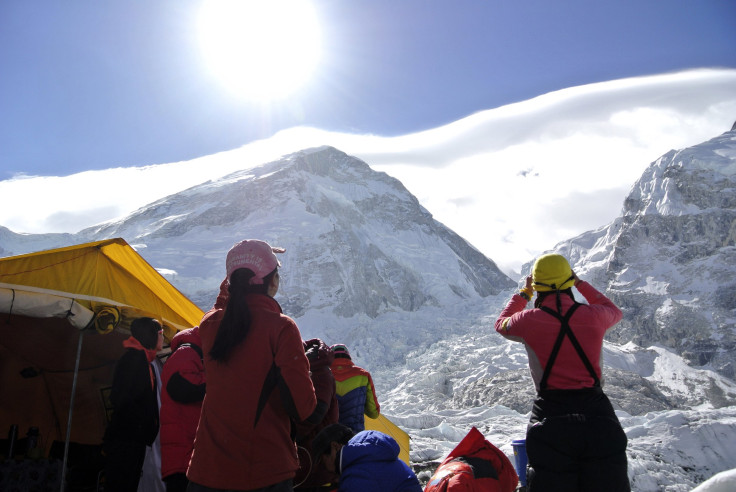Nepal Renews Everest Permits After Guides' Deaths Caused Shutdown

Nepal said on Friday that it would allow mountaineers who were forced to abandon expeditions to Mount Everest when an avalanche incident led to the shutdown of the mountain in April last year. Ending months of uncertainty, the country said it will now allow the mountaineers to use their climbing permits until 2019.
The government will extend last year’s permits without charging new fees, Nepal’s tourism head Tulasi Gautam told the Associated Press (AP). The country has also cut climbing fees this year to $11,000 per climber from $25,000, AP reported.
Last year's crisis began after indigenous Nepali guides of the Himalayas boycotted their service following an ice avalanche that killed 16 guides in the mountain's deadliest disaster. A group of 12 international tour operators and the Expedition Operators’ Association of Nepal have since demanded that the country resume the services.
The uncertainty over the climbing permits has already led several companies to cancel their planned expeditions this year, Firstpost reported. The U.S.-based High Adventure Expeditions and Canada's Peak Freaks have reportedly called off their 2015 expeditions, claiming that the government has mismanaged the situation.
Government officials have said they will accept the same permits again, but only if the expedition groups return with the same 39 teams for whom the permits had been issued. However, climbing groups said that organizing the same teams again on such short notice would be difficult.
"Here we are six weeks away from starting our expeditions and no one knows anything," Russell Brice of expedition group Himalayan Experience told the BBC.
Everest’s three-month climbing season begins in March. Nepal has also reportedly pledged to improve its weather forecasting, climbing security and search-and rescue efforts.
Mountaineering and tourism are a significant part of the country’s income, estimated to bring in about 270 million Nepalese rupees ($2.7 million) a year in Everest permits. Over 4,000 people have reportedly climbed the Everest since the first ascent was made in 1953, and nearly 250 people have died on expeditions so far.
© Copyright IBTimes 2025. All rights reserved.





















